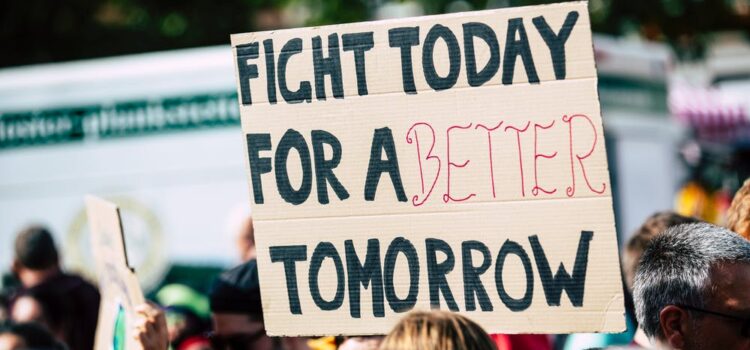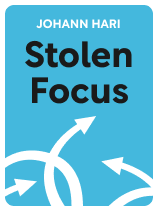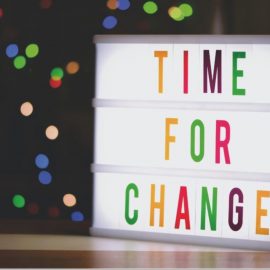

This article is an excerpt from the Shortform book guide to "Stolen Focus" by Johann Hari. Shortform has the world's best summaries and analyses of books you should be reading.
Like this article? Sign up for a free trial here .
Do you care about something that needs to be improved? How can you raise awareness for a cause?
In Stolen Focus, Johann Hari explains there is an attention crisis caused by external factors outside of your control. One of his solutions is a citizen-led movement, which highlights the important steps people can take to raise awareness.
Below we’ll look at how to raise awareness for a cause with the example of an attention rebellion.
Attention Rebellion Example
Hari argues that the attention crisis warrants an “attention rebellion” to galvanize millions of people to pressure governments and businesses to make changes. His steps to sparking this movement is a good example of how to raise awareness for a cause you care about:
1) A symbolic moment that raises awareness. At an initial stage, a group of core activists who are well-informed on the attention crisis must stage a symbolic battle against the forces stealing our focus. For example, they might hack social media networks for a day to show people that it’s possible to live without these apps. That symbolic battle would help more people understand the gravity of the situation.
2) A wider movement involving political and social actors. As more people become engaged in the issue, it will be necessary to involve some of them in the political arena so they can influence decision-makers, while others continue to energize normal citizens to become involved and exert pressure on governments and companies.
The initial stages Hari describes to raise awareness for a cause coincide with the steps for launching an intervention outlined in The Practice of Adaptive Leadership:
1) Always keep the big picture in mind. Even after you’ve started acting, maintain your diagnostic mindset so you can keep a clear head, continue to look at the situation objectively, and change course if necessary.
2) Assess how widespread the urgency to change is. If only one group is ready to deal with a challenge, your first step will be to make the issue urgent for everyone. You can do this in a variety of ways, such as raising the challenge directly, challenging people, or asking questions. This is where a symbolic awareness-raising moment is necessary.
3) Decide how to frame and state your intervention. Clearly communicate the course of action and why it’s important. It must resonate with other people’s points of view, not yours, and inspire them. Use whatever mix of facts and emotions will connect to your group’s values and find the balance between uninspiring language and fear-mongering. This is where more people join the movement and invite others to join as well.
4) Relinquish control. Once you’ve raised awareness for a cause, let other people discuss and change it. This will encourage others to fill the space you’ve left open and also allow you to assess progress and plan your next step.
5) Use the factions within your team as a proxy for broader factions. As an intervention grows, some people will engage with it and others will resist it. Notice who falls into each group, and predict how broader factions might react to start addressing large-scale resistance.

———End of Preview———
Like what you just read? Read the rest of the world's best book summary and analysis of Johann Hari's "Stolen Focus" at Shortform .
Here's what you'll find in our full Stolen Focus summary :
- The seven factors causing the current attention crisis
- Johann Hari's three-part solution to gaining your attention back
- Why society needs to change, not just individuals






